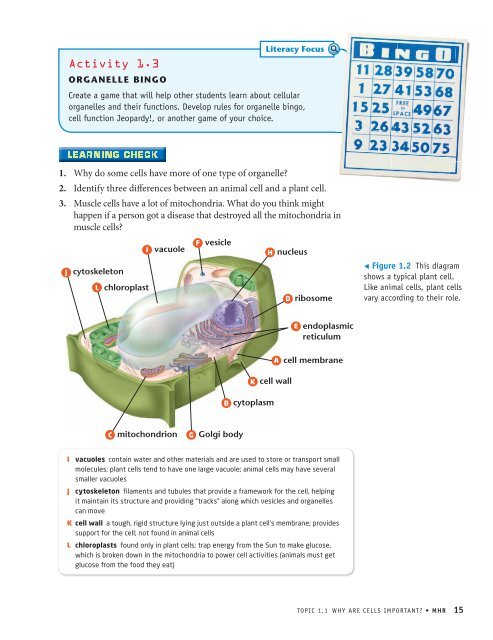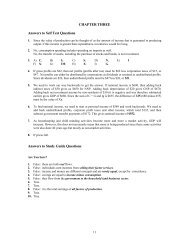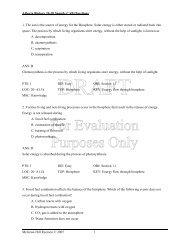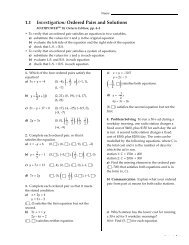Topic 1.1 Why are cells important? (3720.0K) - McGraw-Hill Ryerson
Topic 1.1 Why are cells important? (3720.0K) - McGraw-Hill Ryerson
Topic 1.1 Why are cells important? (3720.0K) - McGraw-Hill Ryerson
Create successful ePaper yourself
Turn your PDF publications into a flip-book with our unique Google optimized e-Paper software.
Literacy Focus<br />
Activity 1.3<br />
ORGANELLE BINGO<br />
Create a game that will help other students learn about cellular<br />
organelles and their functions. Develop rules for organelle bingo,<br />
cell function Jeopardy!, or another game of your choice.<br />
1. <strong>Why</strong> do some <strong>cells</strong> have more of one type of organelle?<br />
2. Identify three differences between an animal cell and a plant cell.<br />
3. Muscle <strong>cells</strong> have a lot of mitochondria. What do you think might<br />
happen if a person got a disease that destroyed all the mitochondria in<br />
muscle <strong>cells</strong>?<br />
J<br />
cytoskeleton<br />
L<br />
I<br />
chloroplast<br />
vacuole<br />
F<br />
vesicle<br />
H<br />
nucleus<br />
D<br />
ribosome<br />
Figure 1.2 This diagram<br />
shows a typical plant cell.<br />
Like animal <strong>cells</strong>, plant <strong>cells</strong><br />
vary according to their role.<br />
E<br />
endoplasmic<br />
reticulum<br />
A<br />
cell membrane<br />
K<br />
cell wall<br />
B<br />
cytoplasm<br />
C<br />
mitochondrion<br />
G<br />
Golgi body<br />
I vacuoles contain water and other materials and <strong>are</strong> used to store or transport small<br />
molecules; plant <strong>cells</strong> tend to have one large vacuole; animal <strong>cells</strong> may have several<br />
smaller vacuoles<br />
J cytoskeleton filaments and tubules that provide a framework for the cell, helping<br />
it maintain its structure and providing “tracks” along which vesicles and organelles<br />
can move<br />
K cell wall a tough, rigid structure lying just outside a plant cell’s membrane; provides<br />
support for the cell; not found in animal <strong>cells</strong><br />
L chloroplasts found only in plant <strong>cells</strong>; trap energy from the Sun to make glucose,<br />
which is broken down in the mitochondria to power cell activities (animals must get<br />
glucose from the food they eat)<br />
TOPIC <strong>1.1</strong> WHY ARE CELLS IMPORTANT? • MHR 15

















